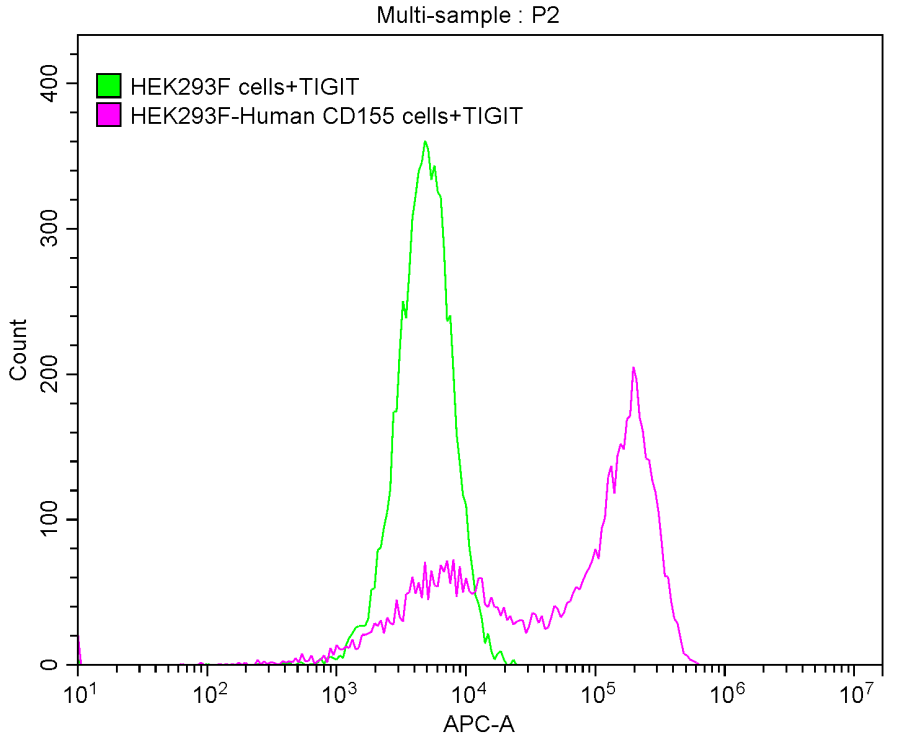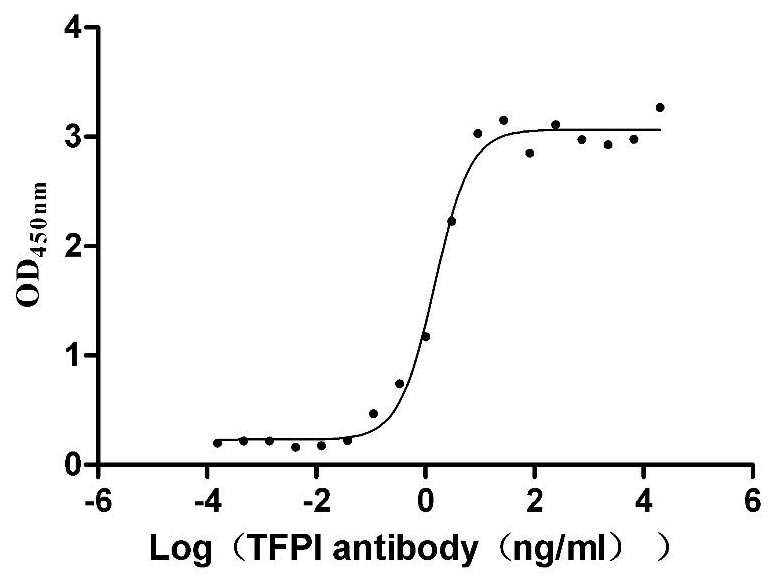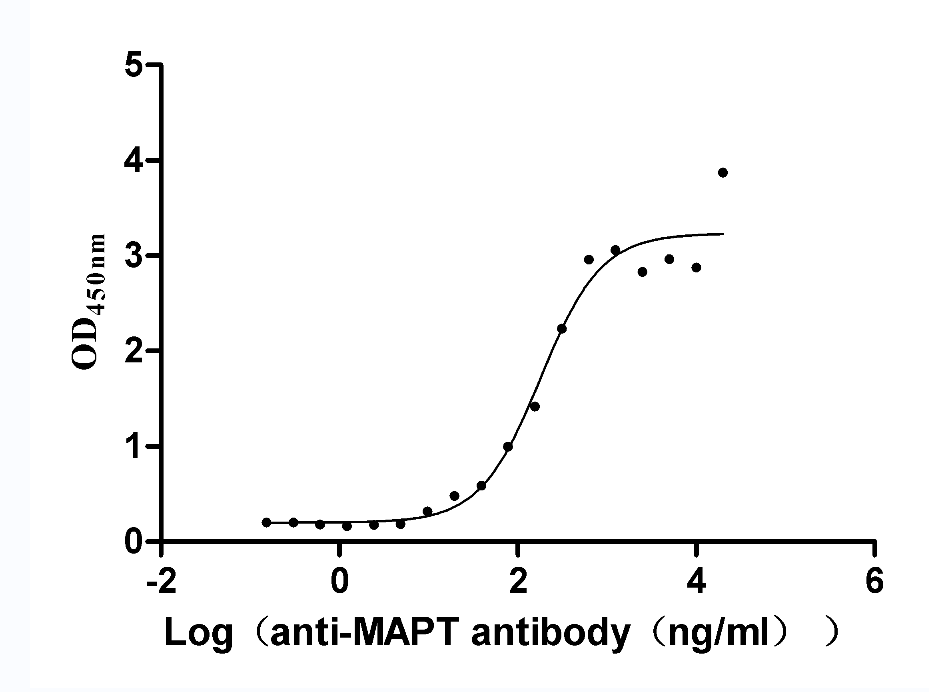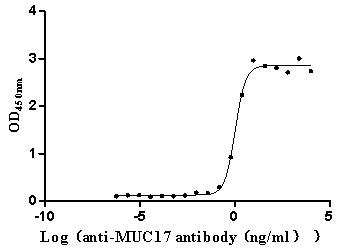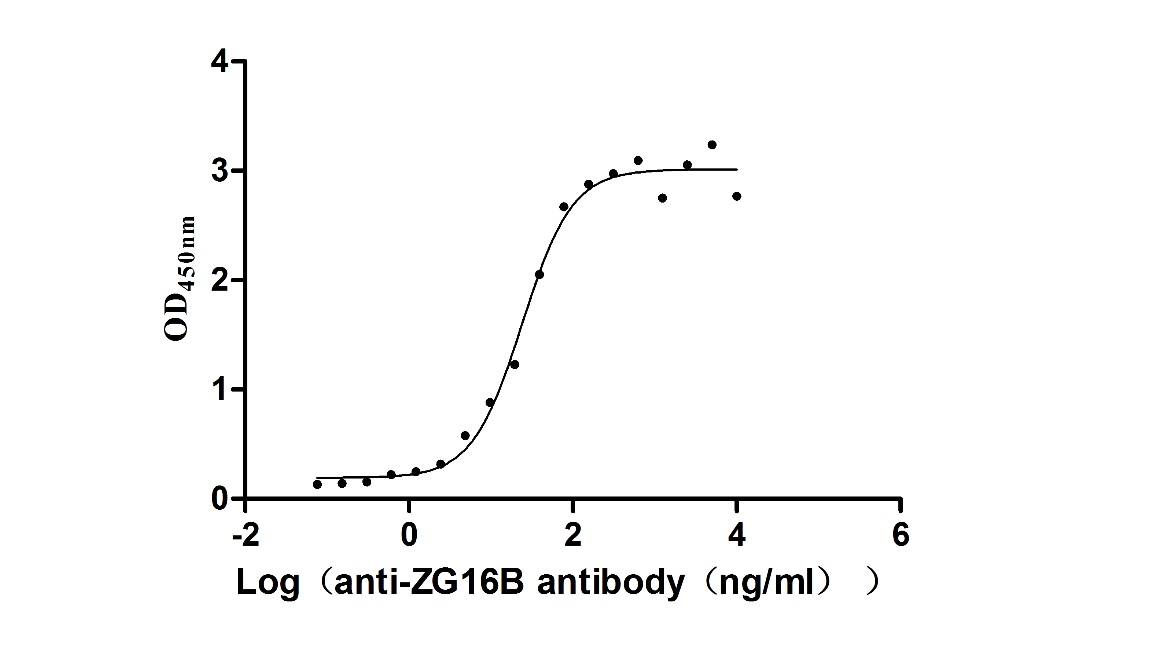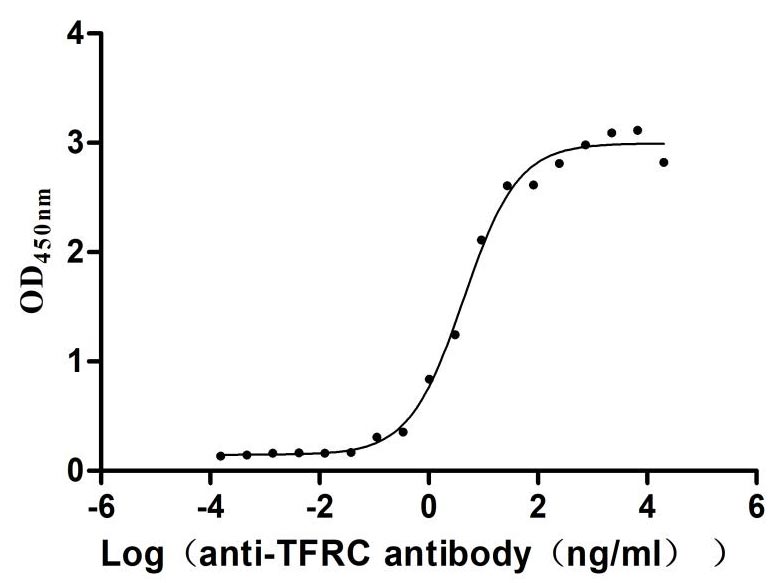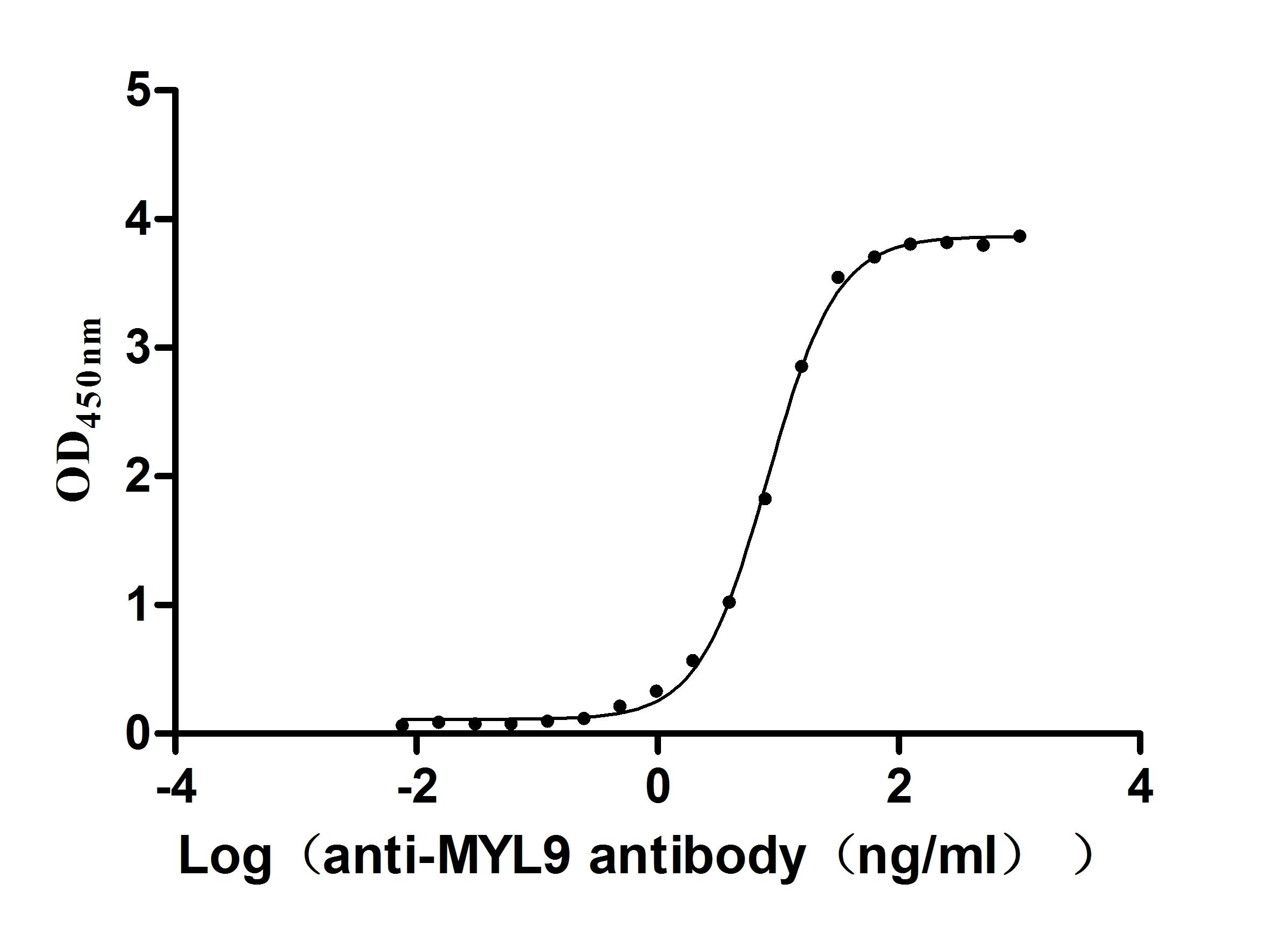Recombinant Human Maleylacetoacetate isomerase (GSTZ1)
-
货号:CSB-YP009994HU
-
规格:
-
来源:Yeast
-
其他:
-
货号:CSB-EP009994HU-B
-
规格:
-
来源:E.coli
-
共轭:Avi-tag Biotinylated
E. coli biotin ligase (BirA) is highly specific in covalently attaching biotin to the 15 amino acid AviTag peptide. This recombinant protein was biotinylated in vivo by AviTag-BirA technology, which method is BriA catalyzes amide linkage between the biotin and the specific lysine of the AviTag.
-
其他:
-
货号:CSB-BP009994HU
-
规格:
-
来源:Baculovirus
-
其他:
-
货号:CSB-MP009994HU
-
规格:
-
来源:Mammalian cell
-
其他:
产品详情
-
纯度:>85% (SDS-PAGE)
-
基因名:GSTZ1
-
Uniprot No.:
-
别名:EC 2.5.1.18; EC 5.2.1.2; Glutathione S transferase zeta 1; Glutathione S-transferase zeta 1; Gstz1; GSTZ1-1; MAAI; MAAI_HUMAN; Maleylacetoacetate isomerase
-
种属:Homo sapiens (Human)
-
蛋白长度:Full length protein
-
表达区域:1-216
-
氨基酸序列MQAGKPILYS YFRSSCSWRV RIALALKGID YKTVPINLIK DRGQQFSKDF QALNPMKQVP TLKIDGITIH QSLAIIEYLE EMRPTPRLLP QDPKKRASVR MISDLIAGGI QPLQNLSVLK QVGEEMQLTW AQNAITCGFN ALEQILQSTA GIYCVGDEVT MADLCLVPQV ANAERFKVDL TPYPTISSIN KRLLVLEAFQ VSHPCRQPDT PTELRA
-
蛋白标签:Tag type will be determined during the manufacturing process.
The tag type will be determined during production process. If you have specified tag type, please tell us and we will develop the specified tag preferentially. -
产品提供形式:Lyophilized powder
Note: We will preferentially ship the format that we have in stock, however, if you have any special requirement for the format, please remark your requirement when placing the order, we will prepare according to your demand. -
复溶:We recommend that this vial be briefly centrifuged prior to opening to bring the contents to the bottom. Please reconstitute protein in deionized sterile water to a concentration of 0.1-1.0 mg/mL.We recommend to add 5-50% of glycerol (final concentration) and aliquot for long-term storage at -20℃/-80℃. Our default final concentration of glycerol is 50%. Customers could use it as reference.
-
储存条件:Store at -20°C/-80°C upon receipt, aliquoting is necessary for mutiple use. Avoid repeated freeze-thaw cycles.
-
保质期:The shelf life is related to many factors, storage state, buffer ingredients, storage temperature and the stability of the protein itself.
Generally, the shelf life of liquid form is 6 months at -20°C/-80°C. The shelf life of lyophilized form is 12 months at -20°C/-80°C. -
货期:Delivery time may differ from different purchasing way or location, please kindly consult your local distributors for specific delivery time.Note: All of our proteins are default shipped with normal blue ice packs, if you request to ship with dry ice, please communicate with us in advance and extra fees will be charged.
-
注意事项:Repeated freezing and thawing is not recommended. Store working aliquots at 4°C for up to one week.
-
Datasheet :Please contact us to get it.
相关产品
靶点详情
-
功能:Bifunctional enzyme showing minimal glutathione-conjugating activity with ethacrynic acid and 7-chloro-4-nitrobenz-2-oxa-1,3-diazole and maleylacetoacetate isomerase activity. Has also low glutathione peroxidase activity with T-butyl and cumene hydroperoxides. Is able to catalyze the glutathione dependent oxygenation of dichloroacetic acid to glyoxylic acid.
-
基因功能参考文献:
- Some properties of cytosolic and mitochondrial GSTZ1 differed. PMID: 29853471
- mild hypersuccinylacetonaemia (MHSA)can be caused by sequence variants in GSTZ1. Such individuals have thus far remained asymptomatic despite receiving no specific treatment. PMID: 27876694
- rs7975 GG carriers had an increased risk of below-reference sperm motility PMID: 26970898
- We conclude that the lower expression of GSTZ1 in Whites who possess the K carrier haplotype results in lower enzymatic activity and slower metabolism of DCA, compared with those who possess the non-K carrier haplotype PMID: 25738370
- Haplotype variations in glutathione transferase zeta 1 influence the kinetics and dynamics of chronic dichloroacetate in children PMID: 25079374
- The data indicates no association between GSTZ1 genotypes and risk of gastric cancer. PMID: 24719983
- Two SNPs, rs282070 located in intron 1 of the MAP3K7 gene, and rs2111699 located in intron 1 of the GSTZ1 gene, were significantly associated (after adjustment for multiple testing) with longevity in stage 2 PMID: 22576335
- The ping-pong catalytic mechanism of Se-hGSTZ1-1 is similar to that of the natural GPX. PMID: 23280616
- Elucidation of the role of individual residues in the N-terminal, SSC motif of human GSTZ1. PMID: 23299908
- This study was performed on 228 BPD patients and 234 control subjects. Among early-onset patients, the variant alleles of Glu32Lys and G-1002A increased BPD susceptibility. PMID: 22374552
- e report for the first time the conversion of human glutathione transferase Zeta (hGSTZ1-1) into seleno-hGSTZ1-1 by means of genetic engineering in eukaryotes. PMID: 22561244
- The present results indicate that the haplotype of "-1002A, 32Lys, 42Arg" (containing three variant alleles) of GSTZ1 have protective effect compared to the other haplotypes. PMID: 22729907
- Our study did not support any association between susceptibility to exudative AMD (age-related macular degeneration) and polymorphisms of GSTZ1. PMID: 21948024
- Data suggest neonatal onset and age-related increase in GSTZ1 protein expression during liver development/growth. GSTZ1 haplotype influences activity with dichloroacetate but not protein expression. PMID: 22028318
- polymorphisms of GSTZ1 showed strong linkage disequilibrium among cancer patients and control su PMID: 21823988
- Results describe the genotypic frequencies of glutathione S-transferase Z1 polymorphisms among an Iranian population. PMID: 21107728
- The results of this study did not support the association between genetic polymorphisms of glutathione S-transferase Z1 (GSTZ1) and susceptibility to schizophrenia. PMID: 21183226
- subjects with polymorphisms in GSTZ1 have a higher trihalomethanes induced bladder cancer susceptibility PMID: 20675267
- A new allele of GSTZ1 (maleylacetoacetate isomerase), characterized by a Thr82Met substitution and termed GSTZ1d, has been identified by analysis of the expressed sequence tag (EST) database. PMID: 11692075
- Single nucleotide polymorphisms may alter GSTZ1 expression, which may alter the pharmacokinetics of DCA, which is used therapeutically for the treatment of lactic acidosis. PMID: 16609361
- Kinetic studies revealed that the catalytic mechanism of Se-hGSTZ1-1 belong in a ping-pong mechanism similar to that of the natural glutathione peroxidase. PMID: 18373941
- The results are consistent with the hypothesis that reduced dopamine metabolism adversely affects cognition. PMID: 18628685
显示更多
收起更多
-
相关疾病:Maleylacetoacetate isomerase deficiency (MAAID)
-
亚细胞定位:Cytoplasm.
-
蛋白家族:GST superfamily, Zeta family
-
组织特异性:Mostly expressed in liver followed by kidney, skeletal muscle and brain. Also expressed in melanocytes, synovium, placenta, breast and fetal liver and heart.
-
数据库链接:
HGNC: 4643
OMIM: 603758
KEGG: hsa:2954
STRING: 9606.ENSP00000216465
UniGene: Hs.655292
Most popular with customers
-
Recombinant Human T-cell immunoreceptor with Ig and ITIM domains (TIGIT), partial (Active)
Express system: Mammalian cell
Species: Homo sapiens (Human)
-
Recombinant Human Tissue factor pathway inhibitor (TFPI), partial (Active)
Express system: Mammalian cell
Species: Homo sapiens (Human)
-
Recombinant Rat Microtubule-associated protein tau (Mapt) (Active)
Express system: Mammalian cell
Species: Rattus norvegicus (Rat)
-
Recombinant Mouse Tyrosine-protein kinase Mer (Mertk), partial (Active)
Express system: Mammalian cell
Species: Mus musculus (Mouse)
-
Recombinant Human Mucin-17 (MUC17), partial (Active)
Express system: Mammalian cell
Species: Homo sapiens (Human)
-
Recombinant Macaca fascicularis zymogen granule protein 16 homolog B (ZG16B) (Active)
Express system: Mammalian cell
Species: Macaca fascicularis (Crab-eating macaque) (Cynomolgus monkey)
-
Recombinant Human Transferrin receptor protein 1 (TFRC), partial (Active)
Express system: Mammalian cell
Species: Homo sapiens (Human)
-
Recombinant Human Myosin regulatory light chain 12B(MYL12B) (Active)
Express system: E.coli
Species: Homo sapiens (Human)


